Publications
Articles, publications, books, tools and multimedia features from the U.S. Institute of Peace provide the latest news, analysis, research findings, practitioner guides and reports, all related to the conflict zones and issues that are at the center of the Institute’s work to prevent and reduce violent conflict.
Iraq, its Neighbors, and the Obama Administration: Syrian and Saudi Perspectives
Since 2004, USIP's "Iraq and its Neighbors" initiative has sponsored track II dialogues and ongoing research on relations between Iraq and its six immediate neighbors. As part of this work, the Institute--in partnership with the Stimson Center--sponsored a bipartisan, independent, and unofficial Study Mission to Syria and Saudi Arabia in mid-January 2009. The delegation met with a wide variety of leading political figures, businesspeople, NGOs and foreign policy experts in both countries, inc...
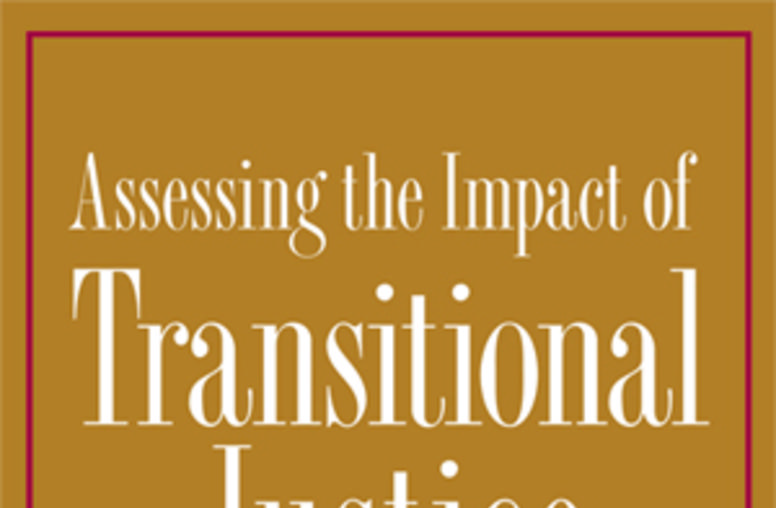
Assessing the Impact of Transitional Justice
In Assessing the Impact of Transitional Justice, fourteen leading researchers study seventy countries that have suffered from autocratic rule, genocide, and protracted internal conflict.
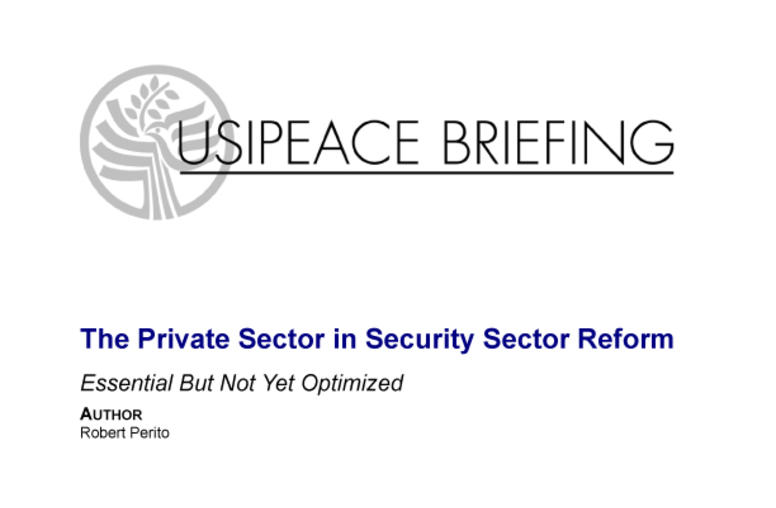
The Private Sector in Security Sector Reform: Essential But Not Yet Optimized
While the U.S. and world economies are slowing markedly, Security Sector Reform (SSR) is a growth industry for the private sector. U.S. government employees may set SSR policy and design projects, but implementation is extensively outsourced to private contractors.
Dr. Ali Al-Dabbagh's Iraq-based Formula for Regional Cooperation
USIP recently hosted Dr. Ali Al-Dabbagh, official spokesman for the Iraqi government, He unveiled a far-reaching regional initiative to increase economic and strategic cooperation in the Middle East. The initiative represents a new level of consciousness and independence in Iraqi foreign policy.
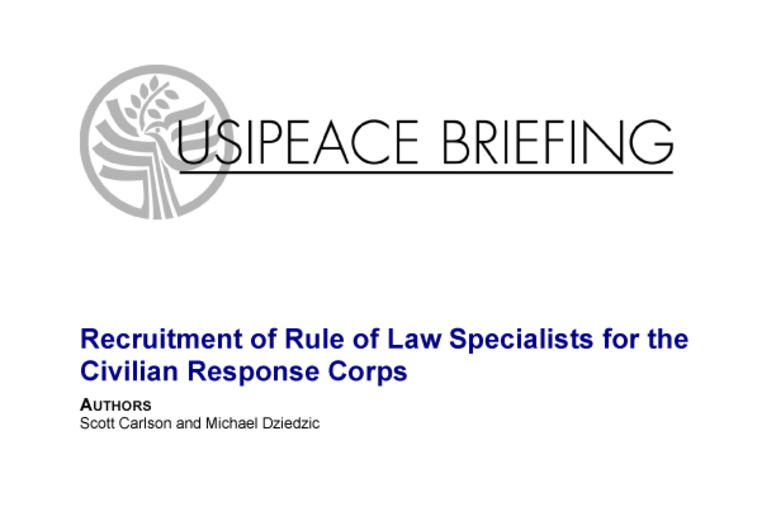
Recruitment of Rule of Law Specialists for the Civilian Response Corps
For more than a decade, experienced international practitioners and peace scholars have recognized that multilateral interventions in societies ravaged by internal conflict cannot succeed unless they come prepared to deal with the inevitable void in public security and inability of the legal system to function effectively. In 1998, two core components of any solution to this crucial deficiency were highlighted in Policing the New World Disorder.
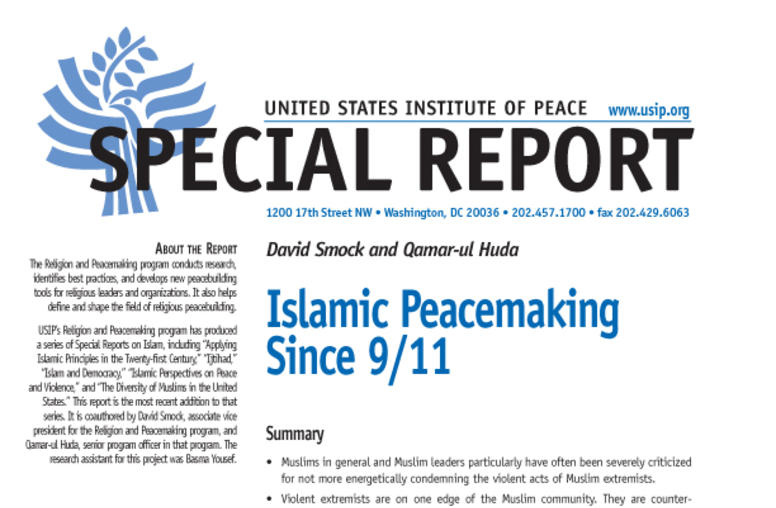
Islamic Peacemaking Since 9/11
Muslims in general and Muslim leaders particularly have often been severely criticized for not more energetically condemning the violent acts of Muslim extremists. The uninformed often assume that extremists represent Islam’s mainstream.
Preventing Genocide: A Blueprint for U.S. Policymakers
The Genocide Prevention Task Force, co-chaired by former Secretary of State Madeleine K. Albright and former Secretary of Defense William S. Cohen, was jointly convened by the United States Holocaust Memorial Museum, The American Academy of Diplomacy and the United States Institute of Peace. Its final report, Preventing Genocide: A Blueprint for U.S. Policymakers, offers practical recommendations on how to prevent genocide and mass atrocities. It was released in December 2008.
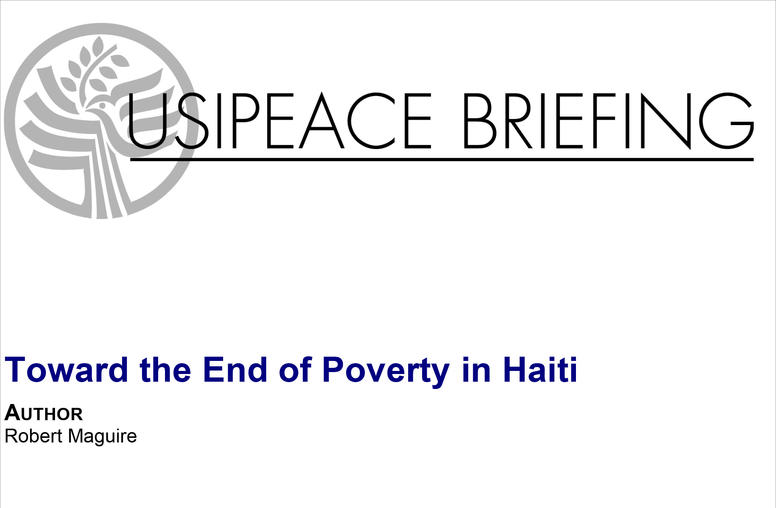
Toward the End of Poverty in Haiti
In July 2006, Haitian poet and historian Jean-Claude Martineau spoke at USIP and said that Haiti is the only country in the world with a last name—“Haiti, poorest country in the western hemisphere” —as described in the media. Sadly, in the two years since, conditions have worsened. Four severe storms that struck Haiti in September 2008 only exacerbated the already critical problem of the country’s poverty.
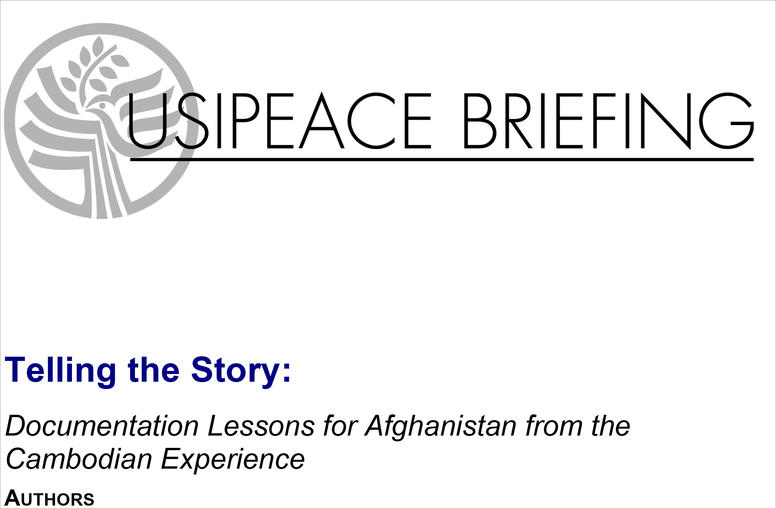
Telling the Story: Documentation Lessons for Afghanistan from the Cambodian Experience
USIP recently co-sponsored a conference in Cambodia to highlight lessons learned about war crimes documentation for Afghan human rights practitioners. USIP's Scott Worden, who organized the event, reports that a broad range of documentation techniques from computer databases to memorials are available to tell victims' stories in a way that promotes healing and a greater understanding of the past.
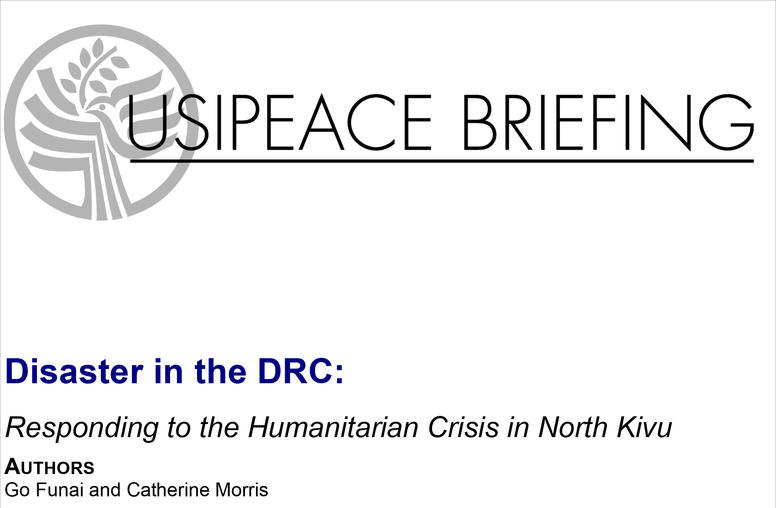
Disaster in the DRC: Responding to the Humanitarian Crisis in North Kivu
This USIPeace Briefing discusses the resurgent violence that left hundreds dead, thousands displaced and millions destitute in North Kivu province in the Democratic Republic of the Congo. The report, by Go Funai and Catherine Morris, highlights the meaning of "human security" in a chronic conflict zone, informal lending mechanisms among local ethnically homogenous communities and the role of neighboring African states in contributing to conflict and stability in the DRC.